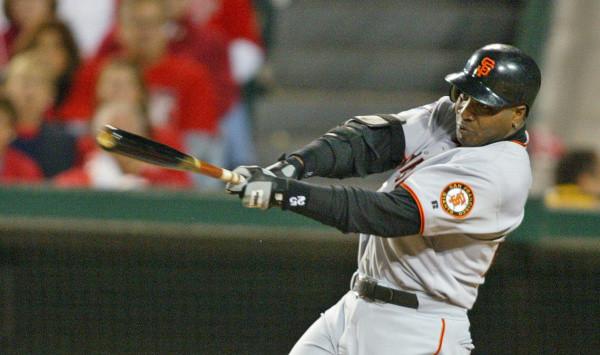Baseball is, for the most part, a sport that loves its traditions and its rules. Most actually make sense, at least to those who spend a lifetime ensconced in the game. However, some rules don’t make sense to even the most ardent baseball fans. The dropped third strike, balks, a steal of first being a fielder’s choice, etc. We see these events happen and shrug and move along though we often don’t agree with them. They have become part of the fabric of our baseball world. Such isn’t always the case, at least not until the powers that be make it so.
Postseason statistics aren’t given the same cache as regular-season statistics. This is true of pretty much every league the world over. There is one notable group of leagues that are an exception, but we aren’t quite to that point of the article yet. Either way, it doesn’t matter if the league in question features a one-game playoff, more often than not the statistics from that game are kept separate from the regular season statistics. This is something we’ve come to expect, we shrug and move on when a player’s career stats do not reflect their playoff statistics.
It’s not that we ignore what a player does in the playoffs, rather we compartmentalize the playoffs as wholly different from the regular season. If we know that Barry Bonds hit 762 regular-season home runs and 9 postseason home runs we also know that Bonds has 762 career home runs and not 771. That’s because the powers that be decided long ago that what a player does in the postseason shouldn’t count in their career numbers. We all accept this and offer up halfhearted reasons for why it’s ok that we ignore chunks of players’ careers. I think it’s a crazy approach myself, but then again I’m the guy who thinks it should be recognized that Bonds actually has 791 home runs (maybe he has more, in our zest to not care about postseason numbers non-major league postseason numbers aren’t documented all that well) in his professional career more than that he has 771 home runs.
I would say I’m out on a limb for thinking the way I do, but that’s pretty obvious. I’m not going to go in-depth about why I think the totality of a player’s professional career should be taken into account when discussing their career numbers. That’s a column for another time, in the here and now our focus will remain on the playoffs. When it comes to incorporating playoff numbers into career numbers I’m also out on a limb. Because yes, I do think Bonds should be recognized as having 771 major league home runs in his career. That’s how many major league home runs he hit because he played in major league playoffs in multiple seasons and he accrued stats during those games. Yet, he’s only celebrated as having 762 career major league home runs because the playoffs can’t be judged against the regular season or some other malarkey.
The only real argument that is ever made against including postseason stats with regular-season ones is that the numbers are skewed in the postseason. There are fewer teams, stadiums, games, and players. There isn’t a shred of a lie in that last sentence, but why does it really matter? Teams are still playing, the stadiums are still producing results, the games are still taking place, and the players are still accumulating stats. They can still have separate lines or tabs. List what a player did in the regular season, then in the playoffs, heck even offer a career regular-season line, and a career playoff line, and then a career total line. I don’t care how it’s done I want to see the actual career results of these players represented in their ledgers. If only there were a group of leagues where I could find such stats?
Luckily Gary Ashwil’s Seamheads Negro Leagues Database exists. At that site, I have the ability to scroll through numerous players, seasons, and teams to see what their results were in the regular season, the playoffs, and with the two combined. It’s nice to look at a player and know immediately what their career numbers were, including advanced stats like WAR. Seamheads does this because for Negro League players there never was a difference between the regular season and the playoffs. It was all baseball and deserved to go into a stat line for that season or career. It never ceases to amaze me how Negro League statisticians manage to be more forward-thinking as compared to the great majority of baseball statisticians. An entire season of baseball should count towards a player’s statistics, what a novel concept!
I’m not thinking this column will change anyone’s mind. Postseason stats have been treated the way they have for years because it’s just the way things are. It is accepted and not given a second thought. Except, I want to think about it more and I want to know who the true home run king is, whose career numbers are made better or worse, and how what we think we know about the numbers is changed because we’re finally looking at all the numbers. It’s yet another one of my pipe dreams, but there’s no reason not to buck a silly rule, an unwritten one at that, and start looking at the true entirety of seasons, players, teams, leagues, and careers.
Lead photo courtesy of Sam Gangwer – Orange County Register




